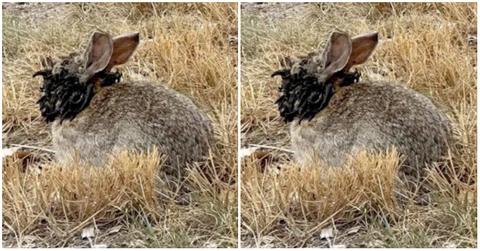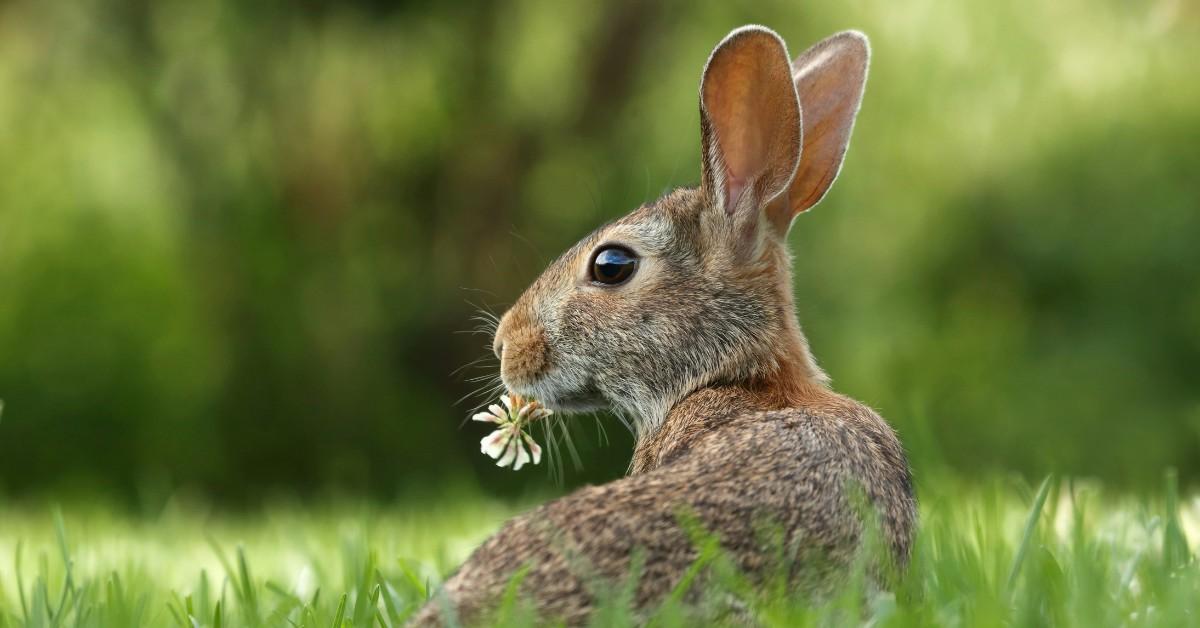Colorado Residents Alarmed by Rabbits With Creepy Tentacle-Like Growths
People want to know what's happening, and if they need to worry.
Published Aug. 13 2025, 3:29 p.m. ET

A Colorado town is full of concerned citizens who keep reporting sightings of "tentacle rabbits." The wild cottontails appear to have growths along their faces that give them the appearance of having tentacles or horns.
The sight of these bunnies is causing quite a fright for concerned residents who want to know what's going on and whether they need to be worried about the unsettling-looking rabbits that appear to be clustered in a northern Colorado town.
According to experts, the tentacle rabbits aren't really cause for concern as far as humans go, but they do say that there is something odd at play that is causing the bunnies to look this way.
Want to know more about the so-called Frankenstein rabbits? Keep reading as we break down what the pros are saying, as well as what is causing this unusual outbreak of funky-looking bunnies in Colorado.

Frankenstein rabbits have been spotted in Colorado.
According to a local news station, residents have reported seeing multiple bunnies in this condition. “It looks like it was black quills or black toothpicks sticking out all around his or her mouth,” Ft. Collins resident Susan Mansfield said during an interview about the rabbits. “I thought he would die off during the winter, but he didn’t. He came back a second year, and it grew."
Another resident said that the rabbits they saw had a “a scabbiesh-looking growth over their face.”
While experts are saying humans have nothing to fear from these rabbits, they are advising them to keep their distance.
The rabbits look like this due to the cottontail rabbit papilloma virus.
A Colorado Parks and Wildlife (CPW) representative says that the rabbits in Ft Worth, Colorado, were infected with a virus known as cottontail rabbit papillomavirus. Fortunately, there doesn't seem to be any reason for humans or household pets to worry.
"As with any wildlife, pets should not interact or come in contact with the rabbits," Kara Van Hoose explained to USA Today. While unsightly, it doesn't seem like the rabbits suffer at all as a result of the infection.
Additionally, people with pet rabbits or domesticated bunnies should pay extra special attention to their pets and have them seen by a veterinarian if they start exhibiting signs of the virus, since symptoms can be more severe with these types of animals.
That being said, wild rabbits do not need treatment for the virus. In fact, CPW told the publication that the sick animals don't require any human intervention, as most will survive the infection, and the growths will eventually go away.
If the name of the virus sounds familiar to you, that's because there's a human version of the virus as well, but you may know it by its full name: Human Papillomavirus, or HPV.
The virus can also cause warts and growths in humans, as well as other symptoms, depending on which of the 100 types of human papillomaviruses you end up coming into contact with.